Your brace treatment is done, or the misalignment of your teeth is only mild, then it is time for retainers. Mild misalignment of the teeth can be corrected without the need of braces treatment with retainers. Also, if your braces are just removed you need to wear retainers for some time to keep your teeth in place!
Book your consultation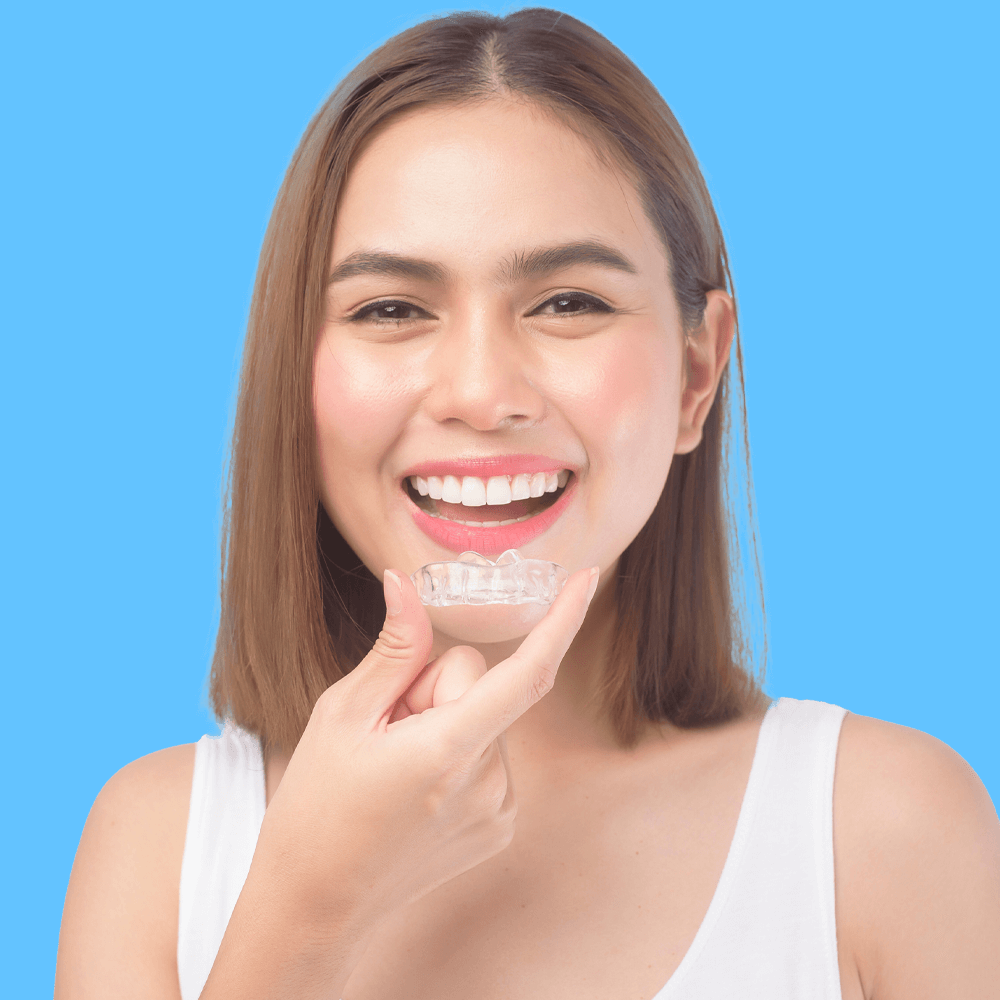
Dental retainers are used in order to keep your teeth in place, usually prescribed after orthodontic treatments like braces, to keep the reshaped teeth from returning to their old places.
Bonded retainers also known as fixed retainers are unremovable, and attached to the teeth after the braces treatment, for a few months to allow the bone and gums.
Hawley retainers can be removed. They are composed of a hard acrylic plate that fits to the roof of your mouth.
Clear plastic retainers are also removable, and usually preferred for aesthetic reasons.
Learn MoreRetainers can treat multiple problems and many people are good candidates for it. Here, you can find answers for different complaints.
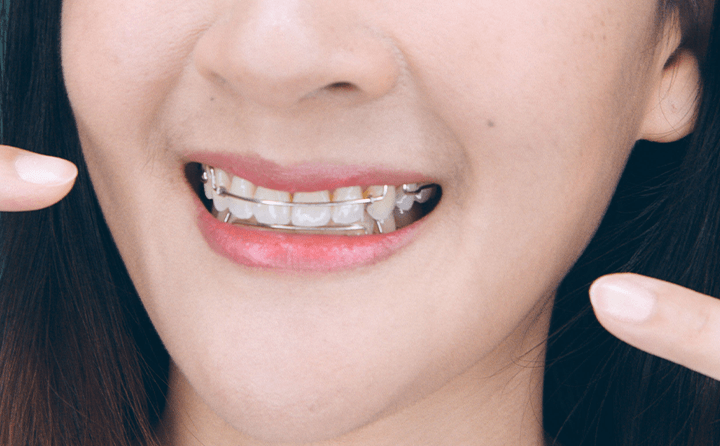
Hawley retainers have been shown to distort speech for about a week up to 3 months.
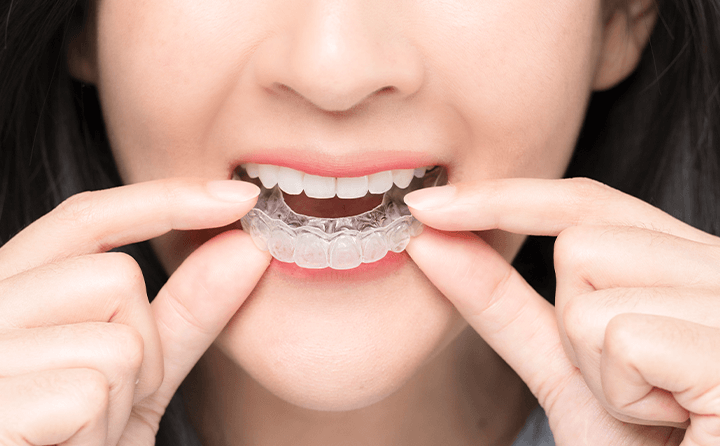
If you don’t wear retainers, your teeth most likely move to their previous position.
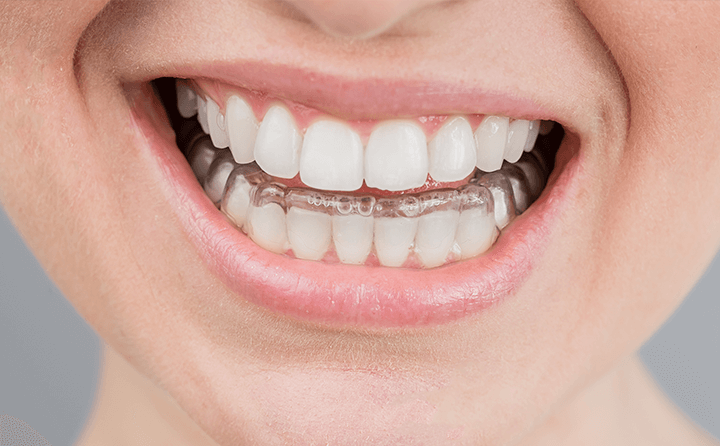
Grinding is very damaging to your teeth, whether you wear retainers or don’t.
At Clineca, we take everything seriously. We understand how important the results are for you. We care about your health and comfort as much as you do. From beginning to end, we inform you, guide you, serve you, and help you.

Surgeries are performed in prestigious fully equipped hospitals in which doctors from all specialties are present.

You will have an online consultation with your surgeon via video chat. After an online examination, and will help you to choose what's the best.

We cooperate with the surgeons who perform a limited number of surgeries each week to ensure the best results.

You can contact our agents 7 days and 24 hours for your questions and concerns, or only support. We'll be fully available for your service.

We provide you with special discounts in luxurious hotels in the vicinity of the hospital. Your comfort is very important to us.

We provide airport transfer and transportation between your hotel and the hospital before/after the surgery via VIP vehicles.

As Clineca, we provide you with patient accompaniment, who will visit you every day in your hotel room during the resting period.
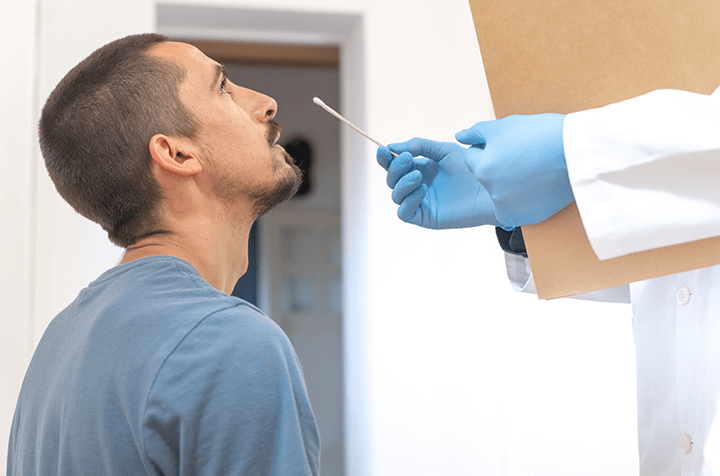
The price includes fees of the surgeon, operating room, hospitalization, tests, medications and medical visits by a nurse.

The price includes hotel layover (including breakfast), and transportation between the airport, the hotel and the hospital.
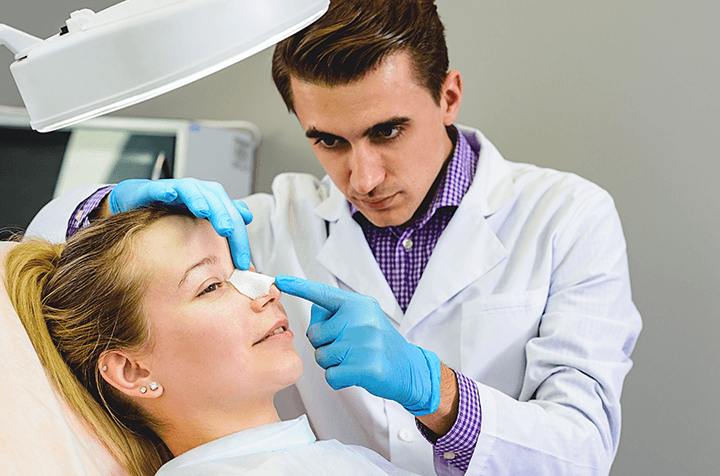
Interpreter service, BBL pillow, neck pillow (rhinoplasty), eye mask, voltage converter and many others that will enhance your satisfaction.

Turkey is a leading player in medical tourism, and Istanbul, which is an extremely beautiful touristic city, is the plastic surgery capital of Turkey.
Clineca has a holistic approach. We believe that everything should be right for a satisfactory cosmetic surgery experience, including your days in Istanbul. We plan every detail of your journey.
After you fill the form, one of our agents will contact you. They will inform you about the whole experience, in detail. If requested, they will arrange an online consultation for you.
You'll have an online consultation with your surgeon via video chat. They will perform an online examination and help you to choose what the best approach to your case is.
We'll plan your whole journey including your surgery date and accommodation. We'll inform you about every need; from preparing your suitcase to advice before the procedure.
Our VIP transportation vehicle will be ready at the airport for you. We’ll drive you to the hospital and they'll get a blood and the C19 test. Then, we'll take you to your hotel.
We’ll take you from your hotel to the hospital. After your examination, the same day you’ll have the surgery. You will stay at the hospital 1-2 day(s), depending on the procedure.
After your stay at the hospital, we'll drive you to your hotel. A wellbeing assistant will visit you every day to inform you, to examine, and to provide medical care during the week.
We'll gladly and proudly show you around our beautiful city. We’ll be very happy to provide you with professional guidance in historical sightseeing, shopping and entertainment.
We’ll take you to 1-week follow-up. After your examination and removal of bandages if required, we’ll inform you about the recovery period. Then, we'll drive you to the airport.
During your recovery, we'll inform you, check on you, and answer your questions 24 hours and 7 days. We'll expect you to send photos periodically to follow your recovery period.
Retainers are usually given to people after braces treatment, although sometimes they can be used for straightening purposes if the level of crookedness or misalignment is minor. If your braces are just removed, you need to wear retainers for a few months to keep your newly aligned teeth in place, as the bone and gums take longer to adapt to your teeth’s new positions.
Book your consultation

The outcomes of Teeth Retainers can be analyzed in three main categories: health-related, aesthetical, and psychological.
Each malocclusion type comes with a variety of complications, uneven bite and proneness to teeth decay are the most common health problems. After retainers the malocclusion will be prevented it will give you a normal bite.
Misaligned teeth can look unattractive. Whether you’re done with braces treatment or the misalignment is mild so this is the first choice of corrective treatment for your misaligned teeth, it will provide you with perfectly aligned teeth.
Malocclusion can cause loss of self-esteem and can affect your daily life. You may smile less often, afraid to show your teeth. After getting the perfect smile with your perfectly aligned teeth, you will feel more confident and smile more!
After the removal of braces, depending on the type of retainers to be used, the procedure varies. If a bonded/fixed type will be used, your dentist will bond a wire to the back of your teeth.
If a Hawley type will be used, your mouth impression will be taken for the custom retainer to be made. The impression will be sent to a dental laboratory for the making of the custom retainer, and in 1-2 weeks you’ll be seen in the dentist’s office for the retainers to be fitted.
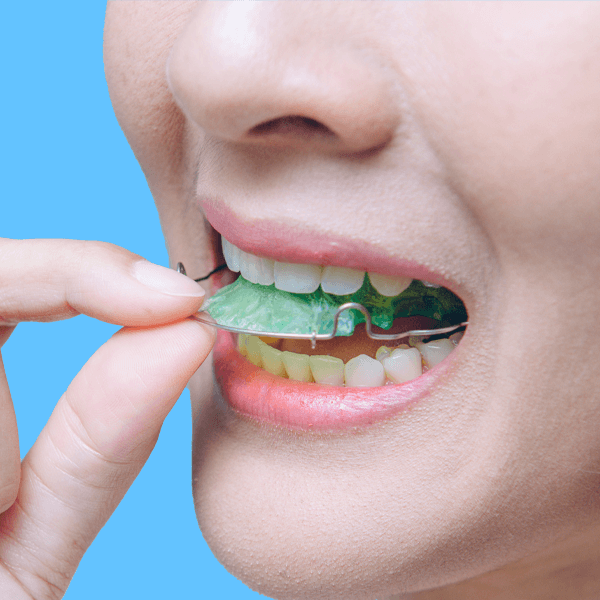
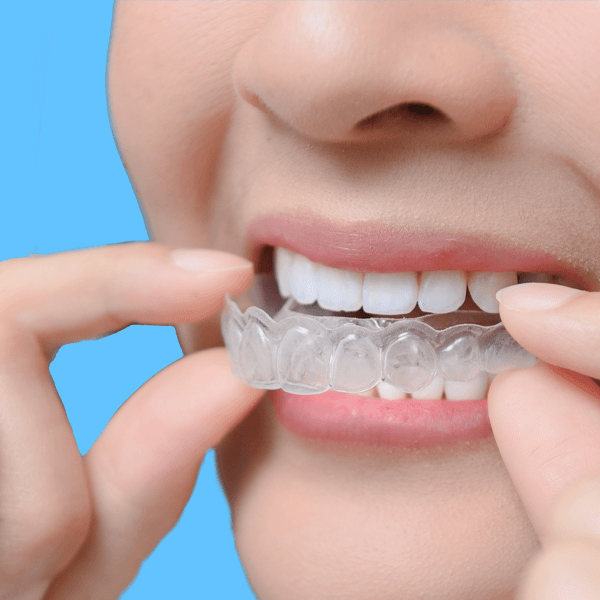
If clear retainers will be used, your mouth impression will be taken for them to be made in a dental laboratory, and after the custom retainer is made, you’ll be given your retainer during your second visit to the dentist about a week or two after the first one.
Retainers is a low risk and low complications procedure. Possible complications can include:
During the first week of retainer recovery, you may experience some discomfort as your mouth adjusts to the new appliance. Your mouth may feel sore or tender, and your speech may be slightly affected. It is normal for your mouth to feel uncomfortable and for your speech to be affected during this initial adjustment period. To help with any discomfort, you can take over-the-counter pain medication as directed. You should also avoid eating hard or sticky foods, as they can damage your retainer or cause discomfort. It is important to wear your retainer as directed by your orthodontist. Most orthodontists recommend wearing your retainer at all times, except when eating or brushing your teeth. It may take some time to get used to wearing your retainer, but with practice, it will become second nature.
After the first week, you should start to notice that your mouth is adjusting to the retainer and any discomfort or tenderness should subside. Your speech should also start to improve as you become more comfortable with the retainer. It is important to continue wearing your retainer as directed by your orthodontist to ensure that your teeth maintain their new position. Over time, you may need to have your retainer adjusted or replaced as your mouth and teeth continue to change. If you have any concerns or questions about your retainer or the retainer recovery process, be sure to talk to your orthodontist. They will be able to provide guidance and support to ensure that your retainer is effective and that your teeth remain straight and healthy.
After meeting with your dentist at their office during your consultation you express your expectations and the dentist checks the condition of your teeth. They will inform you about their professional opinion while taking your expectations and the condition of your teeth into consideration. Then, photos of your teeth will be taken for a 3D simulation. The size, model and color can be decided by you, and you can even choose the color from the tooth color chart. After deciding, on the first operation day teeth will be scraped and if there is a need for an extraction it will also take place on the first day. Temporary veneers will be put on and your dentist will prescribe you with painkillers and antibiotics. You will stay at the hotel for about 4-5 days. During your stay you will be visited by a wellbeing specialist, and if you’re having any problems your dentist will be contacted. After these 4-5 days, your permanent veneer will be applied and it will be all done.

If you are preparing to receive retainers, there are a few things you can do to ensure the best possible outcome.
After having retainers, here are the some of the things to keep the oral hygiene.
Having good oral hygiene practices; brushing twice and flossing once a day as normal. It is important to remove the retainers for meals and beverages (if removable), and putting them in their case. Wear the retainers as instructed by your dentist. Avoid wrapping the retainers in napkins and clean the retainers regularly. Keep them moist when not in use and avoid the high heat.
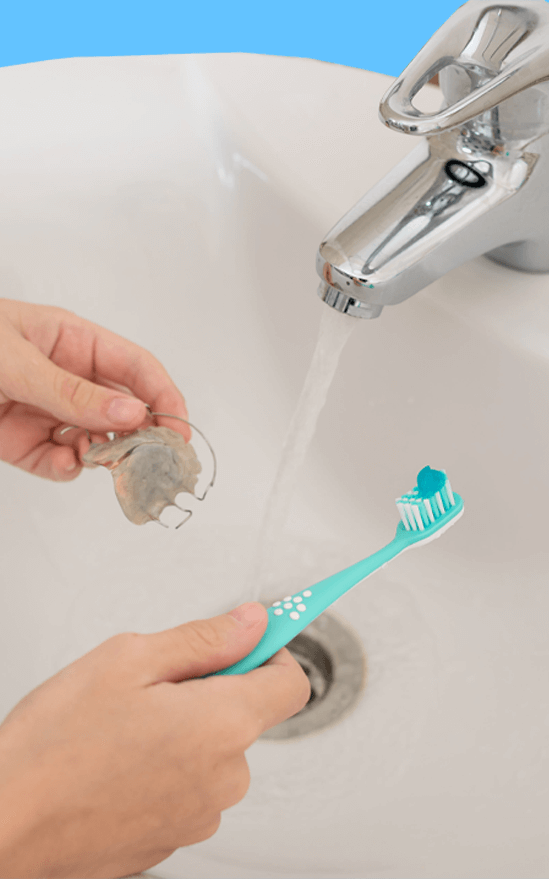
We know you have many questions. Having realistic expectations and deciding to have a dental operation requires information. Here you can find answers to frequently asked questions about the teeth retainers.
Retainers can treat multiple problems and many people are good candidates for it. Here, you can find answers for different complaints.